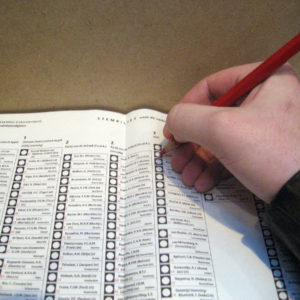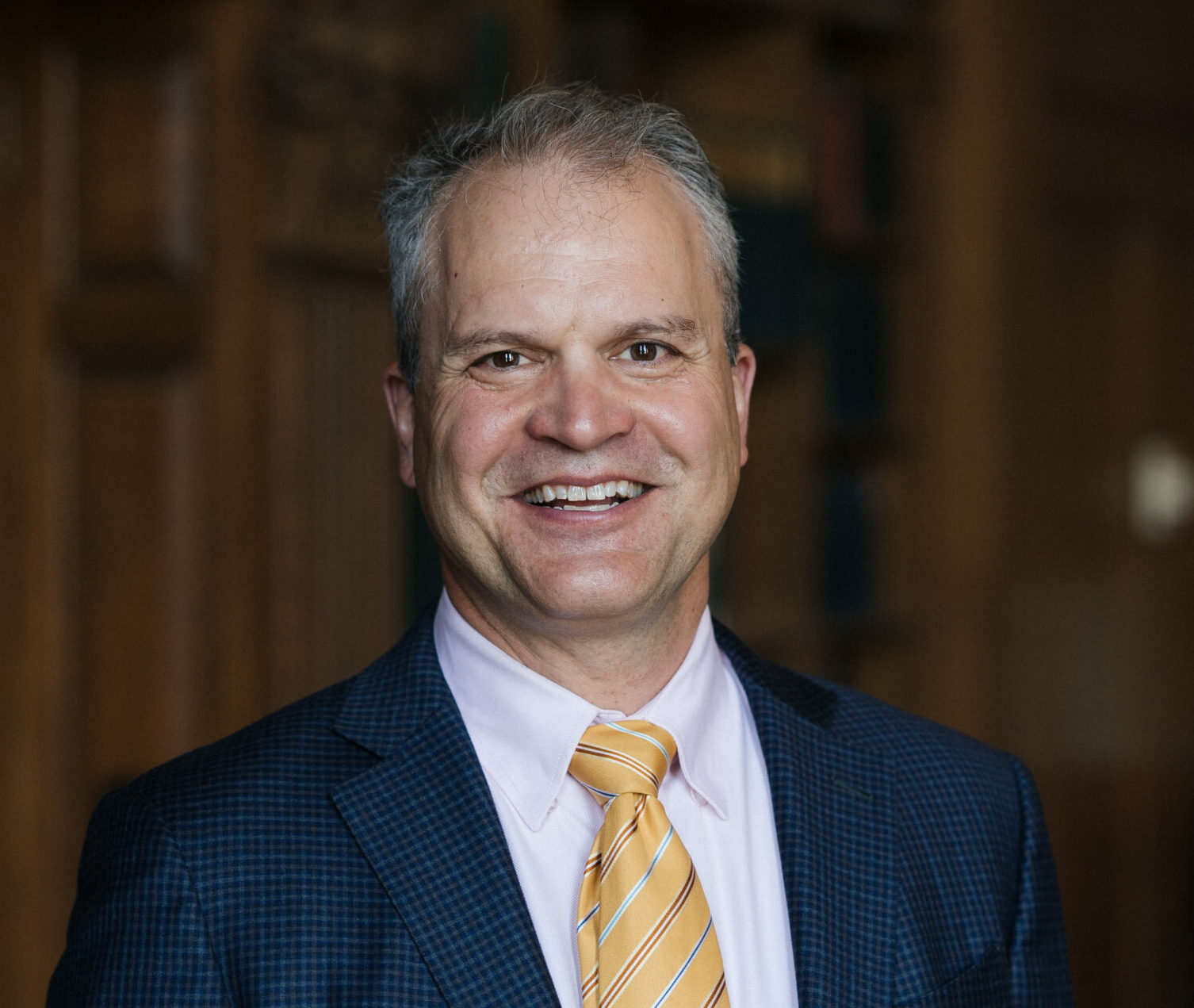Why should taxpayers finance the way political parties, which are private organizations, select their candidates for public office?
That’s what we currently do. The State of New Hampshire runs primary elections for the parties at significant taxpayer expense. It prints ballots, trains volunteers, pays moderators, polices the voluminous rules that govern elections, and much more. If you are a registered Republican, you are given a ballot containing only the names of Republican candidates. Registered Democrats are given ballots with only Democratic candidates. Undeclared voters can choose which ballot they would like to use.
Tuesday afternoon, the House Election Law Committee will hold a public hearing on my bill, HB714, which is informed by a simple principle: When taxpayers pay for elections, every voter should have the option of voting for any candidate. The exception would be the presidential primary, which would remain unchanged.
(A public hearing on HB714 will be on Tuesday afternoon in the Election Law Committee)
I was asked to introduce this bill by a constituent who participated in the “New Hampshire Citizens Assembly” held last summer at St Anselm’s College. The assembly brought together delegates from across the state of all political beliefs and diverse backgrounds for three days to discuss problems besetting our state and debate potential policy solutions. At the conclusion of the assembly, the single-ballot primary was one of the most popular proposals the assembly considered, receiving approval from more than 80 percent of the delegates.
Instead of having taxpayers subsidize a partisan selection process, the single-ballot primary would allow each voter to vote for any candidate. A citizen might select someone who identifies as a Republican for governor, someone who identifies as a Democrat for Congress, and someone who identifies as an independent for the U.S. Senate. The top two candidates for each office would move forward to the general election, whatever their party identification.
The single-ballot primary is a variation on what some call the “Alaska model” since Alaska was one of the first states to use it. But it’s not new. A version of the single-ballot primary has been used for decades in Louisiana as well.
Some will object that this is not fair to the parties, arguing that only those who identify with a party should be able to participate in the party’s selection of its candidates. That makes a certain kind of sense, and it is why some states have “closed primaries,” where primary ballots are only available to those who are registered with a party. But in New Hampshire, we already allow those who do not identify with any party — independents or “undeclared voters,” who are a larger share of the New Hampshire electorate than either Republicans or Democrats – to vote in either party’s primary. If we really believed that only committed and strong partisans should participate in the selection of a party’s candidates, we would not let undeclared voters participate in party primaries.
And if parties want to restrict participation in selecting their nominees to only those who identify with the party, they are free to use a party-led process such as caucuses or party conventions rather than state-run and taxpayer-funded elections. That is akin to the way the Democratic and Republican Parties select their state party chairs as well as the membership of their national committees.
Others will object that a single-ballot primary opens the door to insincere or “strategic” voting – as would happen, for instance if I, as a loyal Democrat, were to vote for an unusually weak candidate vying to be the Republican nominee solely with the intention of saddling the Republicans with a weak candidate in the general election. To avoid that, our election laws at present do not allow registered Democrats to participate in the Republican Party primary, nor registered Republicans to participate in the Democratic primary.
But I believe insincere voting is rare – and would be eliminated by the single-ballot primary. For one, insincere voting is hugely demanding on voters. It requires lots of information not only about where every candidate stands on the issues, but about which candidates are likely to appeal to the electorate. That is extraordinarily difficult to predict, even for pollsters, consultants, and political junkies.
Insincere voting also requires a circumstance where one’s most preferred candidate is assured of moving on to the general election, such as happens when an incumbent has no strong challenger in the primary. But with a single-ballot primary, every candidate will always have a contested primary race. That will render incumbents much less secure and will give voters who support an incumbent a powerful reason to show up on primary day and vote for the candidate they sincerely support.
This points to another point in favor of the single-ballot primary: it will make primary elections compelling contests and, by doing so, inject our primary election process with more common sense. Participation in primary elections is among the lowest of any elections. For instance, only 29 percent of New Hampshire voters participated in the 2024 state primary elections for Congress. Sometimes, primary turnout is even lower than that. When primaries have very small turnouts, voters of a more extreme ideological cast can dominate the election and select ideologically extreme candidates. The candidates they select often turn off the larger electorate who show up for the general election. By allowing every citizen to vote for any candidate, and by making primary contests more competitive, the single-ballot primary will likely get more citizens involved in the primary election process.
If the parties want to turn to the broad citizenry to select their nominees and use taxpayer-funded elections instead of caucuses or conventions, then they should accept the simple principle of HB714: every citizen gets to vote for any candidate, and the candidates with the most votes win. That’s called democracy.
Of course, how we design the institutions that make democracy work is never as certain as a mathematical proof. There is no perfection to be found in politics, and little certainty. Every idea has its flaws, and I acknowledge that those who oppose this bill will have powerful arguments to offer (I have tried to address a couple of them here).
Notwithstanding that, I think the idea – unusual as it is – deserves careful and impartial consideration. It does not benefit or burden either of the great parties in our political contest. It rather tries to bring the common sense of the broad citizenry to political primaries.
Our politics could certainly benefit from more of that.





